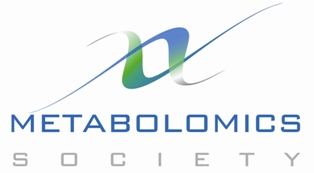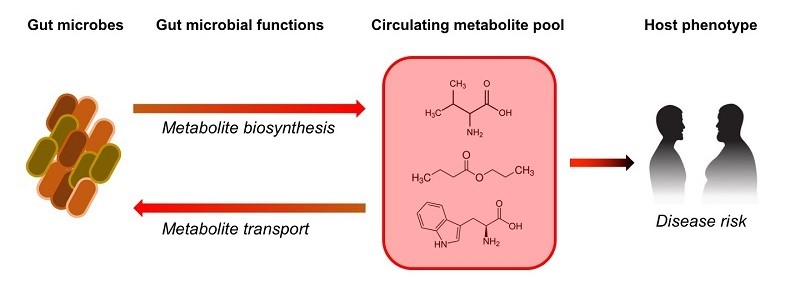
TMIC and the Metabolomics Society
Issue 62 - October 2016
CONTENTS:
Online version of this newsletter:
http://www.metabonews.ca/Oct2016/MetaboNews_Oct2016.htm

 |
| Published
in partnership between TMIC and the Metabolomics Society Issue 62 - October 2016 |
|
CONTENTS: |
|
|
 |
| TMIC
Services |
 |
Metabolomics Society News |
Dr Steffen Neumann, IPB Halle, Germany (re-elected for 2nd term)In addition, Dr Stacey Reinke, Murdoch University, Australia, joins the Board as the newly elected chair of the Early Career Members Network.
Dr Reza Salek, European Bioinformatics Institute, UK (re-elected for 2nd term)
Dr Susan Sumner, RTI International, USA (re-elected for 2nd term)
Prof Julian Griffin, University of Cambridge, UK (newly elected)
Prof Lloyd Sumner, University of Missouri, USA (newly elected)
Dr Justin Van der Hooft, University of Glasgow, UK (newly elected)
Dr Craig Wheelock, Karolinska Institute, Sweden (newly elected)
Dr Christophe Junot, CEA, Paris, France (newly elected)
Dr Oliver Jones, RMIT University, Australia (newly elected)
Dr Nichole Reisdorph, University of Colorado, USA (newly elected)
| |
Metabolomics Spotlight
|

| |
MetaboInterview
|
| Professor
at the National Institute of Genetics and Team Leader at
the Center for Sustainable Resource Science, RIKEN, Japan |
|
 |
Biography With a Ph.D. in Information Science, Masanori started his career as a term researcher at the Electrotechnical Laboratory (Tsukuba, Japan). Soon he moved to the Computational Biology Research Center of AIST (Japan) as its starting member in 2001, and was later appointed as Associate Professor of the Computational Biology Department, University of Tokyo, in 2003. Around this time he started to work on plant metabolomics with Prof. Kazuki Saito and joined RIKEN in 2007. Currently he is Professor at the National Institute of Genetics (Mishima, Japan) and Team Leader at Center for Sustainable Resource Science, RIKEN. |
 |
Metabolomics Current
Contents
|
 |
MetaboNews |
| 20 Sep 2016 |
Metabolomics Enables
Precision Medicine – A White Paper
Community Perspective
By Rima Kaddurah Daouk, Duke University Medical Center On January 20, 2015, President Obama announced the Precision Medicine Initiative (PMI) in his State of the Union address. The PMI brought forward bold vision that would enable a new era of medicine in which researchers, providers, and patients work together to develop individualized care to improve human health and treatment outcomes. The National Institutes of Health and its director Francis Collins have called for communities of researchers from around the country to make the case as to what set of technologies and disciplines would afford the highest level of efficacy in the development of the PMI. Drs. Collins and Varmus (N Engl J Med 2015; 372:793-795) stated that “the concept of precision medicine—prevention and treatment strategies that take individual variability into account—is not new; blood typing, for instance, has been used to guide blood transfusions for more than a century. But the prospect of applying this concept broadly has been dramatically improved by the recent development of large-scale biologic databases (such as the human genome sequence), powerful methods for characterizing patients such as proteomics, metabolomics, genomics, diverse cellular assays, and even mobile health technology, and computational tools for analyzing large sets of data”. They added that what is needed is a broad research program to encourage creative approaches to precision medicine, test them rigorously, and ultimately use them to build the evidence base needed to guide clinical practice. Our Metabolomics Society, through its “Pharmacometabolomics and Precision Medicine Task Group”, with input from our metabolomics community at large, has developed this white paper entitled “Metabolomics Enables Precision Medicine - “A White Paper, Community Perspective”” (Metabolomics 2016,12:149). Our metabolomics community believes that inclusion of metabolomics data in Precision Medicine Initiatives is timely and will provide an extremely valuable layer of data that compliments and informs other data obtained by these important initiatives. The leaders of this Task Group have participated in workshops organized by NIH to shape the PMI and highlighted the importance of inclusion of metabolomics data. Metabolomics data provides a readout of net influences of genome, exposome, gut microbiome, and environment on human metabolism and health. Metabolomics data was shown in over forty recent publications to provide totally new insights about differences in response to treatment among individuals with gender and ethnic differences noted. In the white paper, we discuss the value and approaches for including metabolomics data in large precision medicine initiatives. This white paper offers recommendations for the selection of state of-the-art metabolomics platforms and approaches that offer the widest biochemical coverage, considers critical sample collection and preservation, as well as standardization of measurements, among other important topics. We anticipate that our metabolomics community will have representation in large precision medicine initiatives to provide input with regard to sample acquisition/preservation, selection of optimal omics technologies, and key issues regarding data collection, interpretation, and dissemination. We strongly recommend the collection and biobanking of samples for precision medicine initiatives that will take into consideration needs for large-scale metabolic phenotyping studies. |
Metabolomics Events
|
| 10-12 Oct 2016 |
For further information and registration details, please visit https://www.mri.bund.de/de/ueber-das-mri/veranstaltungen/max-rubner-conference/2016/. |
| 12-14 Oct 2016 |
|
| 13 Oct 2016 |
The symposium will discuss how metabolomics can support biomedical research in fields such as diabetes, cancer and neurodegenerative diseases, with a focus on translational research approaches. Ample time for discussions and networking will be provided. For further information and registration details, please visit https://www.bihealth.org/de/artikel/bih-symposium-metabolomics-in-translational-medicine-577/. |
| 15-16 Oct 2016 |
New this year: A focused workshop is available to a limited group of individuals based on availability. Scholarships for scholars and junior faculty are available. For further information and registration details, please visit https://matrix.secureserverdot.com/metabolomics_2016/home_live1.htm. |
| 27 Oct 2016 |
This symposium will discuss the links between metabolism and cancer, with a focus on translational and clinical applications of metabolomics in oncology. Ample time for discussions and networking will be provided. Posters are welcomed. Please register for free at diabetes-and-cancer@biocrates.com For further information, please visit https://www.helmholtz-muenchen.de/no_cache/gac/news/gac-news/article/35526/index.html. |
| 31 Oct-4 Nov 2016 |
Standard: £1950 This week long course aims to cover how to perform a metabolic profiling experiment, from start to finish. It covers study design, sample preparation, the use of mass spectrometry for global profiling and targeted methodologies and data analysis. It combines lectures and tutorial sessions to ensure a thorough understanding of the theory and practical applications. Topics covered include:
|
| 2 Nov 2016 |
This symposium will discuss biomarker projects from a variety of fields, as well as critical success factors for successful biomarker research. Ample time for discussions and networking will be provided.
|
| 3-4 Nov 2016 |
The course will be led by experts in the field and include significant hands-on experience using both the Q Exactive and LTQ Orbitrap instruments to perform,
For further information and registration details, please visit http://www.birmingham.ac.uk/facilities/metabolomics-training-centre/courses/metabolite-identification.aspx or contact bmtc@contacts.bham.ac.uk. |
| 15-18 Nov 2016 |
Academic: £800 Industry: £1150 A lecture based course detailing an overview of metabolic phenotyping including the use of NMR spectroscopy and Mass Spectrometry, with insights from the experts at Imperial College and collaborators from all over the world. Lectures will cover data acquisition and analysis with some advanced statistical workshops for more hands-on participation for attendees. There will also be examples of real life applications from the research at Imperial College and their collaborators. Day 1: Registration followed by session 1 which will cover an analytical technology (either NMR or MS) for metabolic profiling. A laboratory tour of the facilities will follow. Day 2: Session 2 will cover the alternative analytical technique (NMR / MS) and will be followed by session 3 which will introduce the theory to statistical analysis. Day 3: Session 4 covers more advanced chemometrics, such as OPLS and O2PLS and includes hands-on workshops. Session 5 will introduce metabolite identification in both NMR and MS and cover some tips and tricks to avoid common pitfalls. Day 4: The final day will cover some of the real life applications of NMR and MS for metabolic phenotyping. http://www.imperial.ac.uk/imperial-international-phenome-training-centre/courses/metabolic-phenotyping-in-disease-diagnosis-and-personalised-health-care/ or contact Dr Liz Want (iptc@imperial.ac.uk) for further information. |
| 22-25 Nov 2016 |
Standard: £1100 This 4 day course provides a comprehensive overview of data analysis for metabolic profiling studies with data acquired from NMR spectroscopy and Liquid Chromatography-Mass Spectrometry. It combines lectures and tutorial sessions to ensure a thorough understanding of the theory and practical applications. Day 1: Introductory lectures and tutorials regarding the pre-processing of data acquired via NMR and LC-MS. Day 2: Lectures and tutorials introducing exploratory chemometrics approaches, including PCA. Day 3: Lectures and tutorials covering advanced chemometrics techniques including PLS and Orthogonal PLS. Day 4: The next step - computational tools to aid metabolite identification and pathway analysis. http://www.imperial.ac.uk/imperial-international-phenome-training-centre/courses/hands-on-data-analysis-for-metabolic-profiling/ or contact Dr Liz Want (iptc@imperial.ac.uk) for further information. |
| 23-25 Nov 2016 |
For further information and registration details, please visit http://www.birmingham.ac.uk/facilities/metabolomics-training-centre/courses/q-exactive.aspx or contact bmtc@contacts.bham.ac.uk. |
| 28 Nov to 2 Dec 2016 |
Overview: Pre-processing, statistical analysis, and annotation of metabolomics data is a complex task. The Workflow4metabolomics online infrastructure provides a user-friendly and high-performance environment with advanced computational modules for building, running, and sharing complete workflows for LC-MS, GC-MS, and NMR analysis (Giacomoni et al., 2015). Goals: During this one-week course, participants will learn how to use the W4M infrastructure to analyze their own dataset.Morning sessions will be dedicated to methodology and tools. Afternoon sessions will be devoted to tutoring. Target audience: LC-MS, GC-MS and NMR experimenters (e.g., biologists, chemists) Registration fee: 750 € (Academia) and 1400 € (Industry); Fees include accommodations but not travel expenses Language: English Pre-registration: Monday 30 May 2016 to Friday 15th July 2016 at Workflow4Experimenters course 2016 Contact: contact@workflow4metabolomics.org For further details, visit http://workflow4metabolomics.org/training/W4Mcourse2016. |
| 8-10 Dec 2016 |
On behalf of the steering committee,
the Institute of Cardiometabolism and
Nutrition (ICAN) is delighted to
invite you to the fourth ICAN
Conference Series on Precision
Medicine in Cardiometabolic and
Nutrition-related Diseases, which will
take place in Paris, France, from
December 8-10, 2016. Program: http://www.ican-series.com/program For further details, visit http://www.ican-series.com/. |
| 12-13 Dec 2016 |
Quality Assurance and Quality Control in Metabolic Phenotyping Venue: Birmingham Metabolomics Training Centre, School of Biosciences, University of Birmingham, Birmingham, UK This 2-day course will provide a comprehensive overview of the application of quality assurance (QA) and quality control (QC) in metabolic phenotyping. The course is aimed at students and researchers who are actively working in the field. Experts who have developed the application of QA and QC procedures within the field will lead the course. It will include both theoretical and practical components to
For further information and registration details, please visit http://www.birmingham.ac.uk/facilities/metabolomics-training-centre/courses/quality-phenotyping.aspx or contact bmtc@contacts.bham.ac.uk. |
| 13-17 February 2017 |
EMBO Practical Course on Metabolomics Bioinformatics for Life Scientists Venue: European Bioinformatics Institute (EMBL-EBI) - Training Room 2 - Wellcome Genome Campus, Hinxton, Cambridge, CB10 1SD, United Kingdom Application opens: Monday August 08 2016 Application deadline: Friday November 11 2016 Participation: Open application with selection Contact: Maria Bacadare Goitia Registration fee: £350 Overview This course will provide an overview of key issues that affect metabolomics studies, handling datasets and procedures for the analysis of metabolomics data using bioinformatics tools. It will be delivered using a mixture of lectures, computer-based practical sessions and interactive discussions. The course will provide a platform for discussion of the key questions and challenges in the field of metabolomics, from study design to metabolite identification. Audience This course is aimed at PhD students, post-docs and researchers with at least one year’s experience in the field of metabolomics who are seeking to improve their skills in metabolomics data analysis. Participants ideally must have working experience using R (including a basic understanding of the syntax and ability to manipulate objects). For more information, please visit https://www.ebi.ac.uk/training/events/2017/embo-practical-course-metabolomics-bioinformatics-life-scientists-3. |
| 17-18 May 2017 |
Conference on Food and Nutritional Metabolomics for Health Venue: The Ohio State University, Columbus, OH, USA The purpose of this two-day event is to disseminate state-of-the-art knowledge in the field of food and nutritional metabolomics and foster networking and collaboration among colleagues and industry partners. For more information please visit: https://discovery.osu.edu/focus-areas/foods-for-health/events/conference-2017.html. |
| 26-29 June 2017 |
Metabolomics 2017 Venue: Brisbane, Australia  The 13th Annual International Conference of the Metabolomics Society will be held in Brisbane from June 26-29, 2017. Check back for updates in the coming months at http://metabolomics2017.org. |
Metabolomics Jobs |
This is a resource for
advertising positions in metabolomics. If you
have a job you would like posted in this
newsletter, please email Ian Forsythe (metabolomics.innovation@gmail.com).
Job postings will be carried for a maximum of
four issues (eight weeks) unless the position
is filled prior to that date.
Jobs Offered
| Job Title | Employer | Location | Posted | Closes | Source |
|---|---|---|---|---|---|
| UCD Post Doctoral Research
Fellow Level 2, UCD School of
Agricultural & Food Science
(Temporary) |
University College Dublin | Dublin,
Ireland |
23-Sep-2016 | 21-Oct-2016 |
University
College Dublin;
(search Ref #008717) |
| Postdoctoral Research
Fellowship in Metabolomics |
UCEIV, Toxicology team | Dunkerque, France | 14-Sep-2016 | 10-Oct-2016 |
University
of the Littoral Opal
Coast |
| Postdoctoral Researcher -
Metabolomics / Analytical Chemistry |
Gunma University | Japan,
Maebashi |
7-Sep-2016 | 7-Oct-2016 |
ResearchGate.net |
| Postdoctoral Fellow |
University of Johannesburg | Johannesburg,
South Africa |
18-Aug-2016 | Until filled |
Metabolomics Society |
| Director, Mass
Spectrometry and Bio-Analytical
Operations |
Stemina Biomarker Discovery | Madison,
Wisconsin, USA |
15-Aug-2016 | 15-Nov-2016 |
Metabolomics Society |
| Postdoctoral Research
Fellow in Marine Metabolomics |
Weizmann Institute of Science | Rehovot,
Israel |
10-Aug-2016 | |
Weizmann Institute of Science |
| Researcher Position |
Centro Cardiologico Monzino | Milan,
Italy |
8-Aug-2016 | |
Centro Cardiologico Monzino |
| Postdoctoral Fellow in
Metabolomics/Metabolite Identification |
University of Missouri Metabolomics Center | Columbia,
USA |
8-Aug-2016 | |
University of Missouri |
| Postdoctoral Fellow in
Clinical Metabolomics |
Concordia University | Montreal,
Canada |
14-Jul-2016 | 31-Oct-2016 or until
filled |
Concordia University |
|
Ian J. Forsythe Double AB, MSc Editor, MetaboNews Department
of Computing Science
University of Alberta 221 Athabasca Hall Edmonton, AB, T6G 2E8, Canada Email: metabolomics.innovation@gmail.com Website: http://www.metabonews.ca LinkedIn: https://ca.linkedin.com/in/ian-forsythe-465512128 Twitter: http://twitter.com/MetaboNews Google+: https://plus.google.com/118323357793551595134 Facebook: http://www.facebook.com/metabonews |
This newsletter is
published in partnership between The
Metabolomics Innovation Centre
(TMIC, http://www.metabolomicscentre.ca/) and
the Metabolomics Society (http://www.metabolomicssociety.org)
for the benefit of the worldwide
metabolomics community.
|